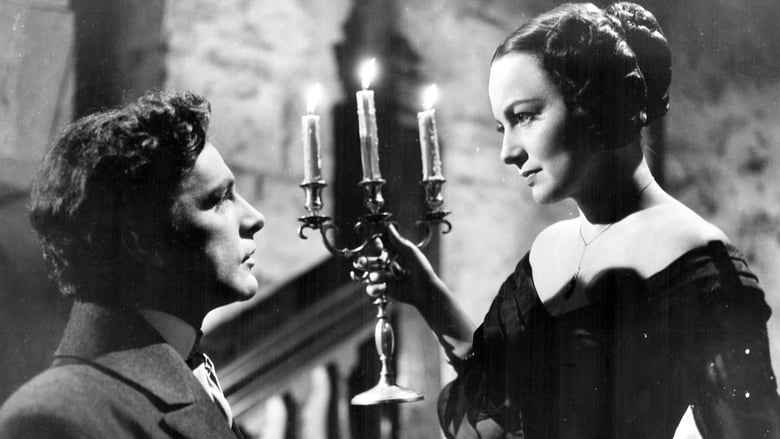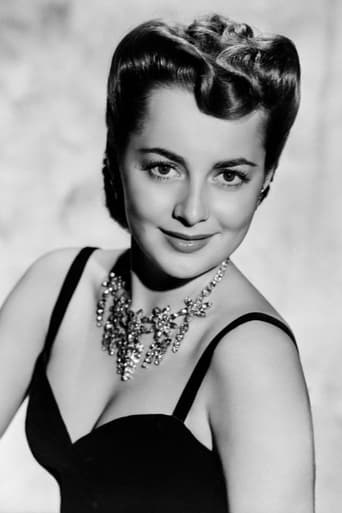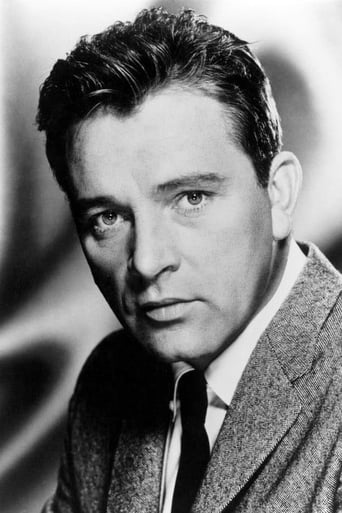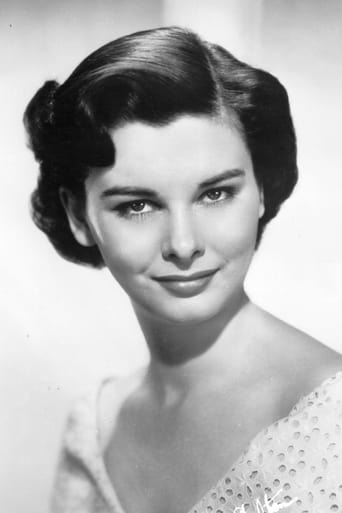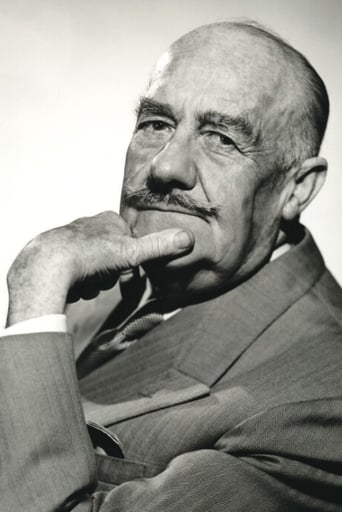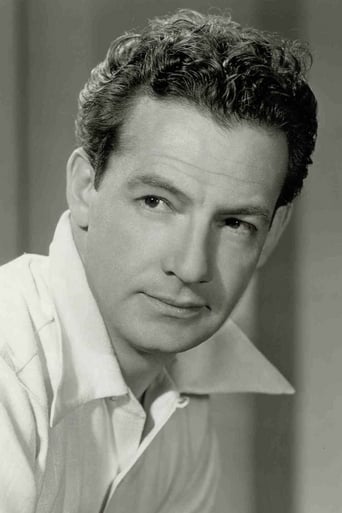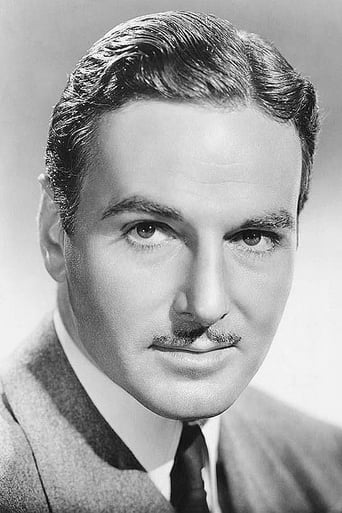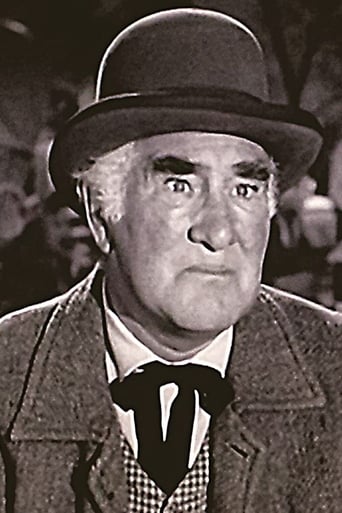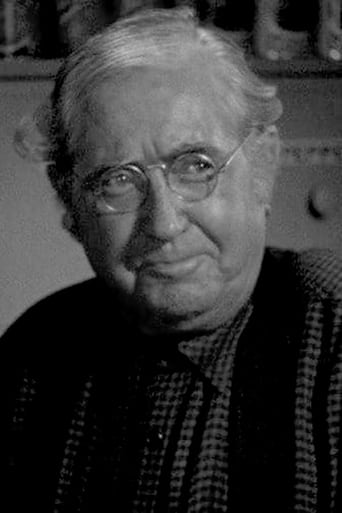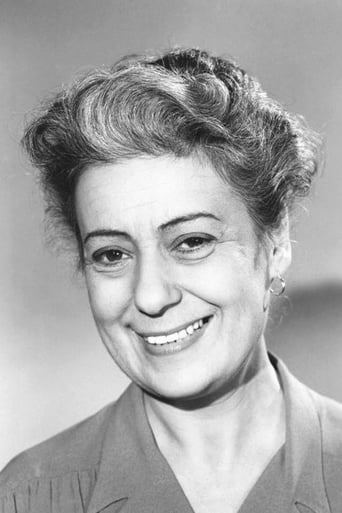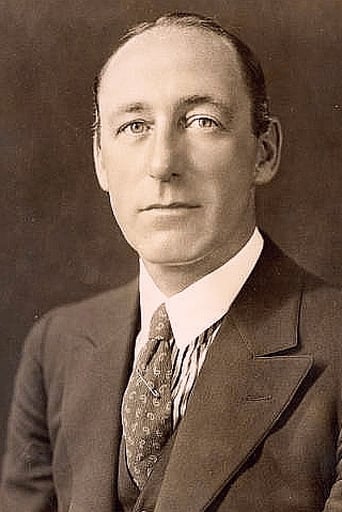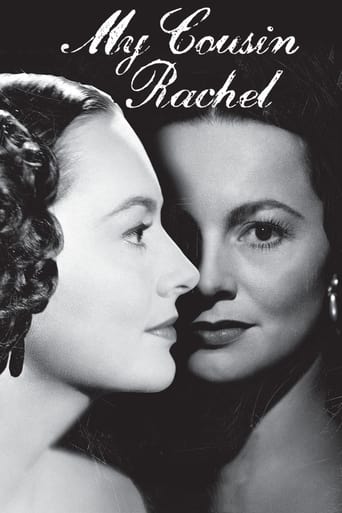
A young man plots revenge against the woman he believes murdered his cousin, but his plans are shaken when he comes face to face with the enigmatic beauty.
Similar titles
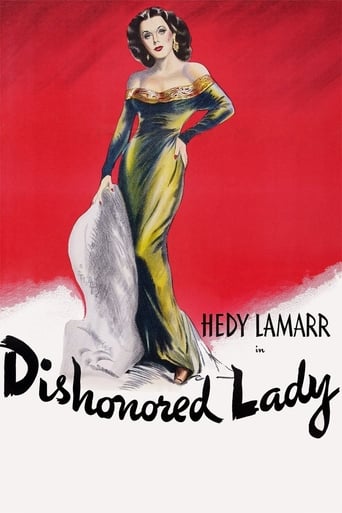
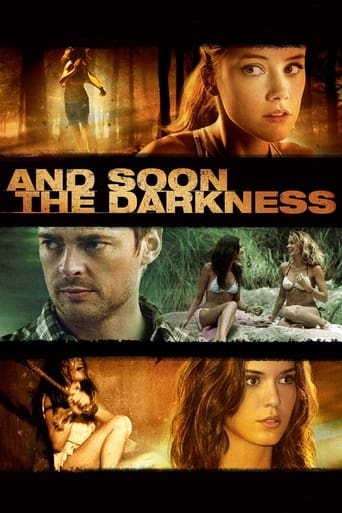
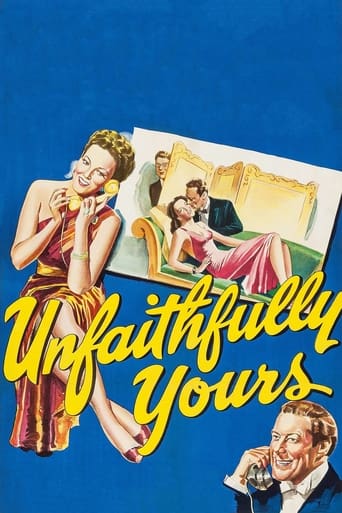
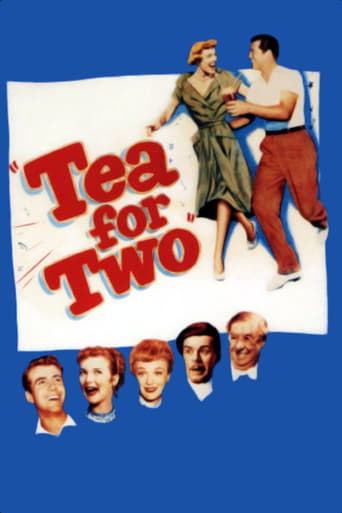
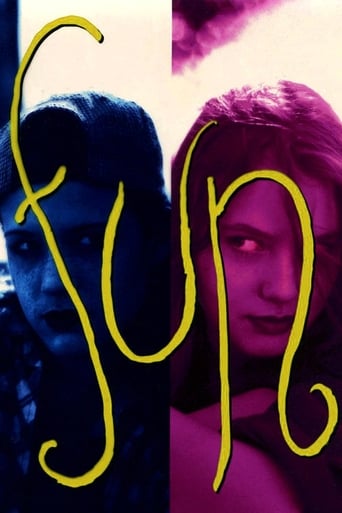
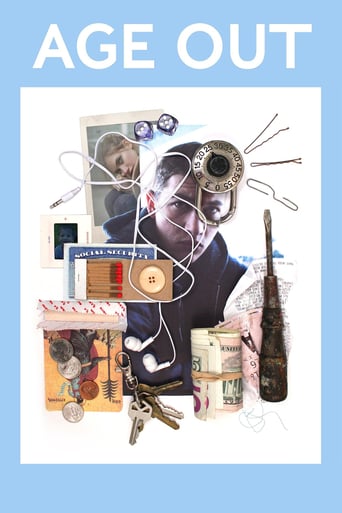

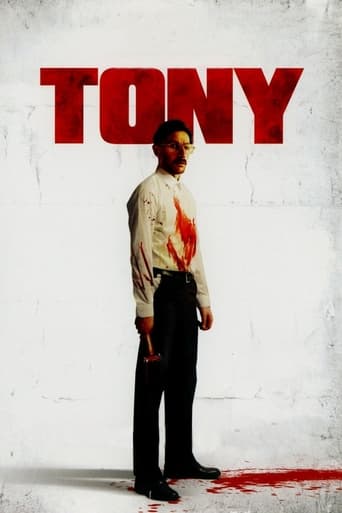
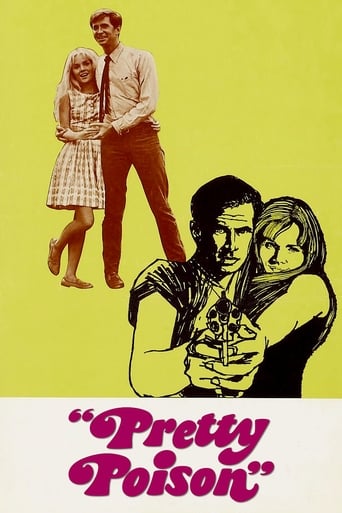
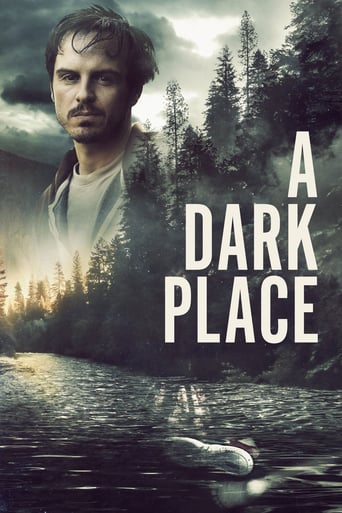
You May Also Like
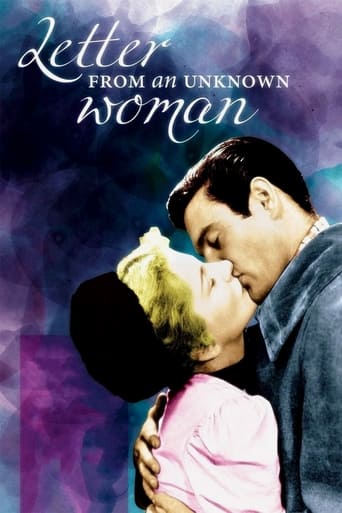
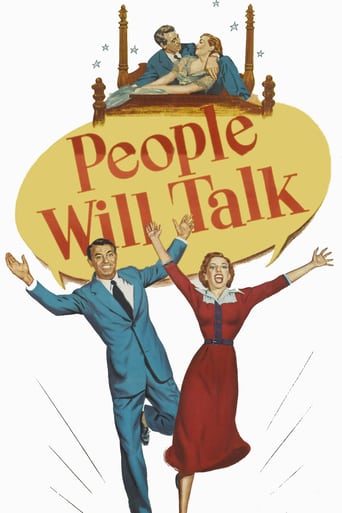

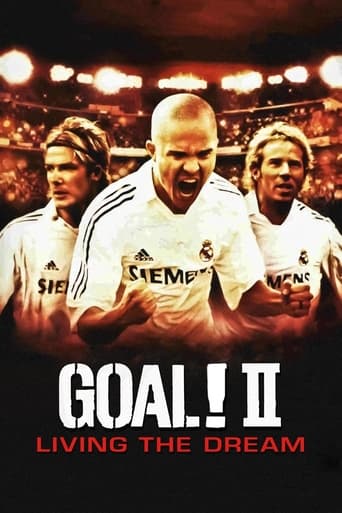


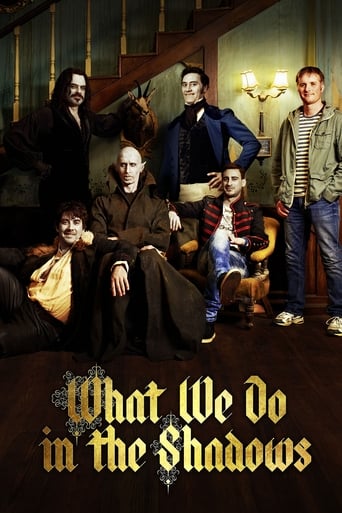
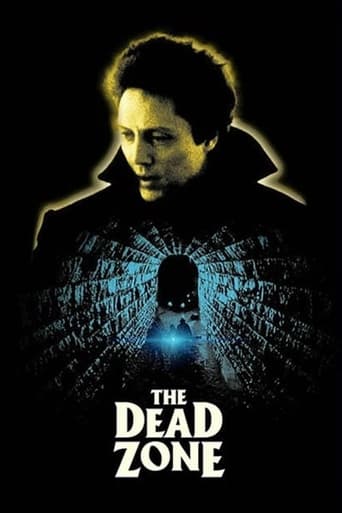

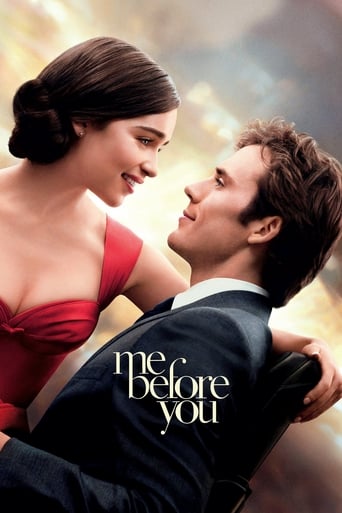
Reviews
Absolutely Fantastic
The first must-see film of the year.
The biggest problem with this movie is it’s a little better than you think it might be, which somehow makes it worse. As in, it takes itself a bit too seriously, which makes most of the movie feel kind of dull.
I didn’t really have many expectations going into the movie (good or bad), but I actually really enjoyed it. I really liked the characters and the banter between them.
"My Cousin Rachel", like Hitchcock's "Rebecca" from twelve years earlier, is based on a novel by Daphne du Maurier. Both films are Gothic melodramas set in Cornwall, and both have a wealthy landowner as the main male character. Another link is that the female lead is played in "Rebecca" by Joan Fontaine and here by her sister Olivia de Havilland. One difference between the two, however, is that "Rebecca" has a contemporary setting, whereas "My Cousin Rachel" is a period piece set in the early nineteenth century. This is not, however, the sort of "heritage cinema" costume drama with which we are familiar today. Ever since the sixties, it has been customary for films set in the 1800s to be made in colour, often sumptuous colour, with an emphasis on a detailed recreation of the costumes and furnishings of the era. In the fifties, however, it was quite common for such films to be treated as a sort of period version of film noir, in black and white with dramatic, expressionist photography. "Blanche Fury" is a British example of this phenomenon, and "Carrie" another American one. The film has a particularly dramatic opening scene. Ambrose Ashley, a Cornish gentleman, is out walking along the coast with his young cousin Philip, an orphan whom Ambrose has adopted as his son. As they walk they see a body swinging on a gibbet and Ambrose turns to Philip and says: "Always remember, Philip, death is the price for murder."Fast forward about twenty years. Ambrose, who has been advised to move to warmer climes for the sake of his health, goes to live in Florence where he marries the Countess Rachel Sangalletti, the English-born widow of an Italian aristocrat. Shortly afterwards, Ambrose dies in mysterious circumstances, leaving his estate to Philip rather than his new wife. Philip is convinced, on the basis of a few mysterious letters from his cousin, that Ambrose was in fact murdered by Rachel, but when she travels to England and he meets her, he falls desperately in love with the beautiful older woman. (Philip is 25, Rachel probably in her mid- thirties). As their relationship progresses, however, Philip's suspicions about Rachel return, and he begins to suspect that she might be planning to murder him to secure ownership of the estate.The film's main problem is that it is never made clear whether or not Rachel murdered Ambrose or whether she is plotting to kill Philip. We spend about half the film thinking that she is the victim of unjustified suspicion and the other half believing that she may well be guilty of the crimes of which she is suspected. I don't intend to examine all the conflicting evidence with which we are presented, as fedor8 has already done this in his helpful review which sets out both the case for Rachel's innocence and the case for her guilt. The truth is never really established, and the film's ambiguous ending does not assist in this regard. In some artistic contexts ambiguity can be beneficial, but I feel that a Gothic suspense drama like this one needs to draw a clearer line between virtue and villainy. The film does, however, also have its strong points. As mentioned above, its stark photography is very effective, and it was nominated for an Academy Award for Best Cinematography. There are also two excellent acting performances from De Havilland as Rachel and a young Richard Burton as Philip. I would not agree with those who see Philip as a Heathcliff figure- Emily Bronte's hero was always something of a threatening outsider, whereas Philip the wealthy country gentleman is really an insider, part of the system. Perhaps a more accurate comparison would be with a younger version of Mr Rochester from "Jane Eyre"- proud, impulsive, wilful, capable of both great generosity and great folly. Burton, one of several possible contenders for "greatest actor never to win an Oscar", deservedly received the first of his seven nominations for this film. (His second nomination came the following year for "The Robe", a film directed by the same director, Henry Koster). Oddly, his nomination here was in the "Best Supporting Actor" category, even though his is very much a leading role. One might have thought that the ambiguity surrounding Rachel would have given De Havilland a problem as to how the character should be played. She is able, however, to give a very nuanced performance, suggesting both Rachel's lovability and her possibly sinister side. Another good contribution comes from the lovely young Audrey Dalton, in her debut film, as Louise, the young girl who loves Philip but fears losing him to Rachel. Audrey was a highly promising young actress who never really went on to become a major star, although she was to give another memorable performance in "Titanic" the following year. Some have speculated that the film might have been improved had it been directed by Hitchcock rather than Koster, but the Master was never really comfortable with period drama. His attempt to film Du Maurier's "Jamaica Inn" resulted in one of his least memorable movies. He might have brought a greater sense of suspense to certain scenes, but I suspect that even he would have had difficulty in overcoming the problem of the ambivalence surrounding Rachel's guilt or innocence. 6/10
"This is what one moment of passion can bring on a man". It is the foreboding we are given from the hindsight of Philip, forever ridden with the memory of his self proclaimed blessed torment Rachel. A woman who is focused upon with great suspicion and secrecy as she places Philip in a heap of trouble. The narrative builds up to its mysterious and suspicious nature after Rachel marries Philip's Uncle before he becomes ill. This sets the mystic nature of My Cousin Rachel as the letters he sends to Philip become more erratic leading Philip to believe he is the victim of murder. As the situation with his Uncle progresses we question ourselves as to who is Rachel. This situation creates a predicament which we as the audience are attracted to. Rachel is purposely introduced in an inexplicable fashion to make us further question her character. Shot from behind our first glimpse of Rachel gives nothing away. All in black wearing a veil she makes her way into Philip's home with her back to us creating a feeling of uncertainty. When Rachel is finally revealed to us it takes ourselves and Philip off guard. Rachel greets Philip in a warm and friendly manner telling him stories of his family history as a way of making him feel comfortable around her while she secretly begins her plot.Rachel continues to perform time and time again to entice Philip into her wicked charm and it is only after Philip gives her everything he owns her delightful masquerade ends and she reveals her frank demeanour. "That was last night Philip and you had given me the jewels", Rachel states in a calm manner unashamed of her deceit. She comes across as a woman confident of her abilities indicating a deadly dilemma will follow. Although My Cousin Rachel is well known for its ambiguity it is hard not to be weary of Rachel. The way she conducts herself to others, eagerly wanting to acquaint with her former husband's friends, acting upon Philip's emotions and secret meetings with a questionable friend. All this and more makes it seem that Rachel is guilty. Yet it is this sense of doubt which drives My Cousin Rachel. It keeps us as the audience guessing just as much as the rest of the characters to the psyche of Rachel. We share a similarity with Philip as our mind is transfixed on solving the mystery. Besides from the enigma that is Rachel acting as the catalyst of the drama in My Cousin Rachel to engage the audience, Joseph LaShelle's black and white cinematography along with Franz Waxman's score brings the audience into a bleak environment full of torment and tragedy. A captivating story which is well acted by the likes of Burton, De Hillvilland and Dalton drawing the attention of the audience in with their performances but it is De Hillvilland's woman in black who leaves us with the lasting memory of My Cousin Rachel's Gothic nature.
Daphne DuMaurier returns to her beloved Cornwall coast to write My Cousin Rachel where she set many of her stories like Rebecca and Frenchman's Creek. Although this film has the breakout performance of Richard Burton in it, I would have to say that it's not as good as Rebecca.Burton's Philip Ashley and Maxim DeWinter of Rebecca are a pair of similar brooding characters each mourning the loss of someone close. In Burton's case it's his cousin John Sutton who took him in as an orphan and raised him like a son. Sutton with whom the foggy and damp climate of Cornwall doesn't agree has moved to Italy and leaves young Burton in charge of the Cornwall estate. Sutton also marries an Italian-English woman in Italy and he dies there.His will left everything to Burton, but as the widow she might have a case to contest. She's got herself an Italian lawyer in the person of George Dolenz who might just be more than her attorney.The title role of that new cousin by marriage is played by Olivia DeHavilland, her first screen appearance since winning her second Oscar for The Heiress. As My Cousin Rachel is set roughly the same time as The Heiress it's like Olivia stepped from film set right to the other despite the three year gap. Her performance also is like what Catherine Sloper evolved into in The Heiress, mannered, controlled, manipulating and shrewd.But one of the four bits of recognition the Academy gave My Cousin Rachel was a first Oscar nomination for Richard Burton. Inexplicably Burton is put in the Supporting Actor category and he's got more screen time than DeHavilland. As for Burton imagine Maxim DeWinter from Rebecca as a young man, Burton is 25 in this part and you've got his character. He's brooding and passionate and madlessly in love with his new cousin by marriage, but also incredibly suspicious that maybe DeHavilland might have helped Sutton along to his demise and that Dolenz helped her.You can't spoil this story because DuMaurier and the film leave it quite up in the air as to whether DeHavilland was a murderer or not. My Cousin Rachel also got Oscar nominations for Costume Design, Black and White Art&Set Direction and Black and White Cinematography. That estate is beautifully photographed, the set will remind of Manderley in Rebecca.My Cousin Rachel is not as good as Rebecca, but certainly has its place in cinema history as the big break performance for Richard Burton.
I had to laugh at the conclusion of this mystery drama! I couldn't keep a straight face at the kind of cop-out conclusion du Maurier slapped on this novel's end. Throughout the ENTIRE story she throws bundles of evidence at us, both that de Havilland (Rachel) IS guilty and that she ISN'T guilty. The reader/viewer is manipulated and lead on like an obedient little dog to sniff out every little clue which du "Agatha Christie" Maurier points to, and like a good little doggy we, the viewers, follow the clues, thinking - as it turns out - very naively that the clues will lead us to a bone, i.e. to a reasonable, logical conclusion to the complex mystery of Rachel's past, her intentions, and whether she killed Burton's relative or not.But what happens at the end? Burton, being convinced of her guilt, arranges an "accident" which kills her, but moments before she dies he suddenly gets (yet another) clue - one that seems to suggest her innocence. The last scene is Burton looking at the sea-shore, telling himself how he will never find out whether she was guilty or not. What a cop-out. Sure, one can argue that it's the kind of mysterious ending that is suitable to a story full of mystery and heavy contradictions, and I have nothing against endings that are ambiguous. However, the major problem with this is that du Maurier gives us very strong arguments to support Rachel's innocence, as well as bombarding us with enough evidence and clues that point to her guilt to make a black L.A. jury convict ten O.J. Simpsons. In other words, Rachel can be neither innocent nor guilty - as absurd as that sounds; whichever conclusion one prefers - there is too much info pointing in the other direction. And that is exactly why the ending is without an answer; my belief is that the writer herself didn't so much strive for a mysterious, romantic, ambiguous ending so much as strive for a way to conclude the book which enables her to escape the trappings of her own illogicalities and inconsistencies. She had realized what a mess she had written - as far as common sense and logic were concerned - and knew that a clear-cut ending wouldn't make any sense. She cons the viewer into attentively following the story, as the latter waits for a reasonable explanation. In that way she succeeds; after all, the story keeps your attention, and the interest actually grows.The evidence pointing to de Havilland's innocence is not as abundant as that pointing towards her guilt, but it can be considered sufficient: 1) she does not sue for her late husband's assets (though this can be explained away as a refined tactic of hers - but I think it's too far-fetched to explain it away like that), 2) de Havilland shows genuine care for Burton's mental instability - during his illness - when she makes a rather worried and sad facial expression at a time when no one was watching her (so there was no point in faking it), 3) the letter which Burton finds at the end.The case for her guilt is more voluminous, though: 1) she looks extremely worried about Burton having received her late husband's secret letters: worried in a rather guilty-looking way, 2) the highly suspicious poisonous(?) seed which grew both in the garden at Burton's villa, and Rachel's home in Italy, and which Burton even finds in a hidden(?) envelope (this last scene makes her look extremely suspicious - it isn't common to send seeds through mail), 3) the way she suddenly changes her tone toward Burton once she inherits everything - and this sudden change CANNOT be explained away by the fact that she was perhaps annoyed by his sudden and public marriage proposal (which may or may not have taken place the night before - even this du Maurier can't or won't tell us), 4) the way she offers Burton a cup of her own tea, but won't drink it herself - and throws it in the grass - after he asks her to drink it herself, 5) she then comes to him with another highly suspicious liquid concoction, and even tells him that he must drink it when she leaves (though this can perhaps be explained away by her worry about his condition - but that's a rather shaky argument), 6) her suspicious past - rumours or not, she seems to have at least some skeletons - which includes: a) the one about her having lost her first husband in a duel between him and her lover, b) having large debts, and living beyond her means, c) any two-time widow in her mid-30s is suspicious unless your name is Anna Nicole Smith, d) her immediate over-drawing of money from her bank-account, the moment she received Burton's first generous payment, e) her sending of big amounts of money to Italy.A lot of the clues which point in one way or another depended less on the story than on de Havilland's acting; the facial expressions she makes in some key situations alternately show both guilt and innocence. The fact that she reacts in ways that both make her look extremely suspicious and innocent, alternately, is not her fault: de Havilland, like the author herself, didn't herself know whether she was playing a killer or not, so she had little choice in trying to act logically. Burton plays a rather naive guy in his 20s, who actually signs off all his possessions to Rachel - against the advice of his lawyer - and even tears apart Rachel's late husband's letters which are rather incriminating. He plays a guy so dumb that I figured that if she is ripping him off then he probably deserves it.The film ends with a giant scam - the cop-out - but it is nevertheless very involving, increasingly interesting, and fairly atmospheric.
Top Streaming Movies











